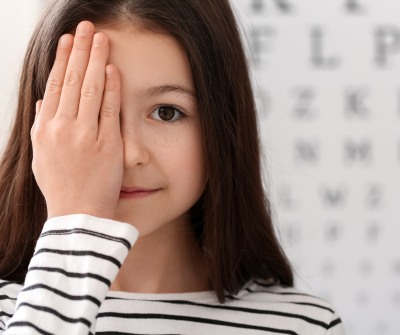
Regular eye tests are essential for children for several vital reasons. Here are 7 of them…
Prevention is better than cure. Book your kids’ eye test today here: Click to Book
Regular eye tests are essential for children for several important reasons:
- Learning and Academic Progress: Clear vision is crucial for reading, writing, and comprehending information. Children with eyesight deficiencies may struggle to see the board, read textbooks, or follow along with class materials, which can hinder their ability to learn and keep up with their peers.
- Concentration and Attention: Poor vision can cause eye strain, fatigue, headaches, and discomfort. Children may become easily distracted or experience discomfort when focusing on schoolwork, leading to reduced attention spans and lower academic performance.
- Participation in Classroom Activities: Many classroom activities require good vision, such as watching educational videos, using interactive whiteboards, or participating in physical education. Children with eyesight deficiencies may miss out on these activities or have difficulty participating fully.
- Social and Emotional Impact: Struggling in school due to eyesight deficiencies can have social and emotional consequences. Children may feel embarrassed, frustrated, or isolated from their peers, decreasing self-esteem and overall well-being.
- Delayed Diagnosis: Vision problems in young children are not always immediately apparent, and children may not communicate their vision difficulties. This delay in diagnosis and treatment can result in prolonged underperformance in school.
- Negative Impact on Development: Early childhood is a critical cognitive and sensory development period. If eyesight deficiencies go unaddressed, they can hinder a child’s overall development, including cognitive, social, and motor skills.
- Missed Educational Opportunities: When children struggle academically, they may miss out on important educational opportunities. If their vision problems remain unaddressed, they may fall behind in their studies, leading to long-term educational challenges.
In conclusion, Parents, teachers, and healthcare professionals must be vigilant about children’s eye health and conduct regular eye screenings to address this issue. Early detection and intervention can help correct vision problems and prevent long-term academic underperformance. Regular eye exams for children can ensure that any eyesight deficiencies are identified and treated promptly, allowing them to thrive in school and beyond.


